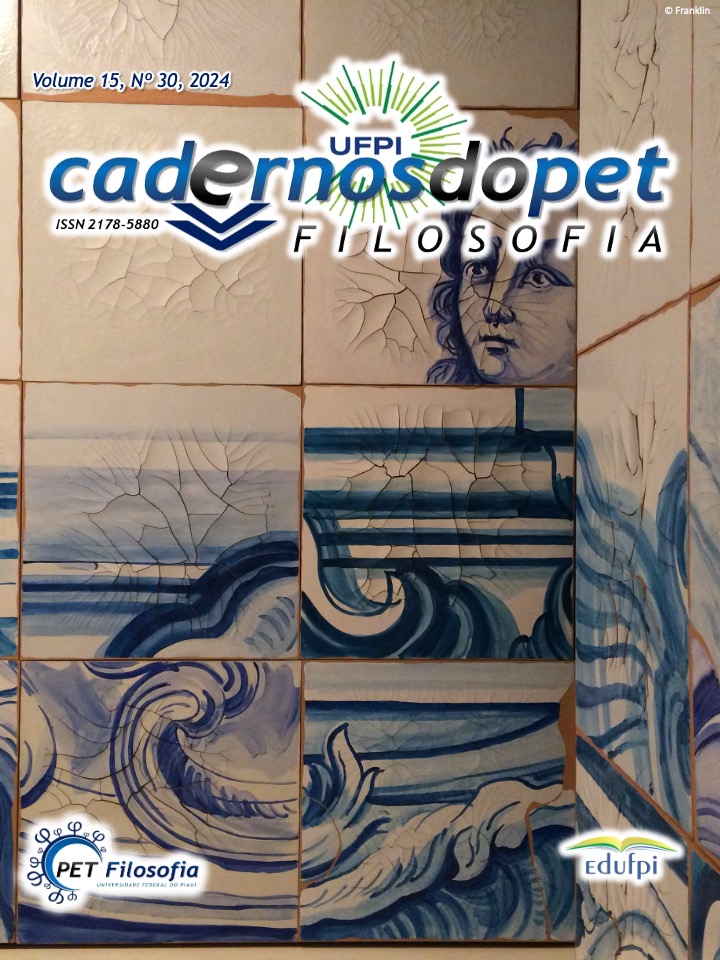The Transition of Parrhesia from Its Political Dimension to the Ethical Constitution of the Care of the Self in Michel Foucault
DOI:
https://doi.org/10.26694/cadpetfilo.v15i30.6325Keywords:
Care of the self; Democracy; Parrhesia; Foucault; VeridictionAbstract
This paper aims to explore the frameworks shaping the interplay between truth, power, and the subject-core themes in Michel Foucault's philosophy-while focusing on the perspectives outlined in his later lectures. Revisiting the concept of parrhesia, etymologically understood as the practice of “saying everything,” the article examines how this notion traverses the fields of aleturgy (the production of truth), governmentality (governing others), and subjectivity (self-governance). It also addresses the crisis of democracy, investigating its claims to be the ideal space for the exercise of frank speech. Finally, it highlights the transition of parrhesia from a political practice to an ethical dimension, essential to the construction of an individual éthos grounded in the practices of Care of the self (epimeleîsthai). To this end, the methodology adopted is bibliographic and analytical-descriptive in nature, with the aim of examining the primary sources from Foucault's lectures and the concepts he developed.
References
BOVERO, Michelangelo. Contra o governo dos piores: uma gramática da democracia. Rio de Janeiro: Campus, 2002.
FOUCAULT, Michel. A hermenêutica do sujeito. São Paulo: Editora Editora WMF Martins Fontes, 2010.
FOUCAULT, Michel. O governo de si e dos outros. São Paulo: Editora WMF Martins Fontes, 2010.
FOUCAULT, Michel. A coragem da verdade: o governo de si e dos outros II. São Paulo: Editora WMF Martins Fontes, 2011.
GALVÃO (UFES), Bruno Abilio. A ética em Michel Foucault: do cuidado de si à estética da existência. Intuitio, [S. l.], v. 7, n. 1, p. 157–168, 2014. DOI: 10.15448/1983-4012.2014.1.17068. Disponível em: https://revistaseletronicas.pucrs.br/intuitio/article/view/17068. Acesso em: 15 out. 2024.
MOSSÉ, Claude. Atenas: a história de uma democracia. Brasília : Editora Universidade de Brasília, 1979.
PLATÃO. Apologia de Sócrates: precedido de Sobre a piedade (Êutifron) e seguido de Sobre o dever (Críton). . Porto Alegre: L&PM, 2008.








